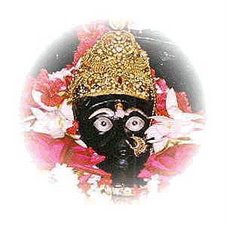
HONG KONG, China, Can legality be attributed to an armed private militia known for its systematic violence against ordinary people? The simple common sense answer to this question is an emphatic NO; yet this is what the Supreme Court of India has been asked to decide recently. The militia in question is known as Salwa Judum. Litigation in the public interest has been filed in the Supreme Court challenging the state government's support of this militia, on which the court is expected to decide in the coming days.
Salwa Judum is a private militia sponsored by corrupt politicians in Chhattisgarh. It was allegedly formed to protect villagers from assault by Maoist groups operating inside and outside Chhattisgarh. The Judum operates in public view, their cadres recruited by serving and retired police or military officers and trained in using weapons and employing armed attack strategies. After the recruitment and training, before deployment the cadres are given official titles as special police officers.
In the past two years, cases of rape, murder and extortion were reportedly carried out by the Judum in Chhattisgarh. A simple Internet search will provide thousands of links to well-documented articles and reports about the Judum and their atrocious activities. The Judum has been known to recruit child soldiers and use them as human shields. Their activities resemble those of fundamentalist religious groups or armed secessionist groups -- acts of organized crime committed against innocent persons with impunity.
Yet when the case was filed in the Supreme Court, the Chhattisgarh state government defended the Judum by trying to categorize it as a "village people's association" against extremist forces. The central government of India has also supported the Judum in several ways. An affidavit filed by the Chhattisgarh state administration in the court tries to justify its support to the Judum. The state administration has been openly promoting the group's activities by promising that cadres recruited and trained by the group will be absorbed into the state police force.
The intention of the state administration in supporting the Judum is quite obvious. The Judum cadres, who are not affiliated with the government, can get away with any criminal activities they are asked to commit while the government insulates itself from responsibility.
For example, the Judum is responsible for forcibly evicting tribal communities from their ancestral grounds so the land could be sold by the state administration to private companies for excavation of minerals and other natural resources. These activities contravene Article 6 of the International Covenant on Civil and Political Rights, which the government of India has sworn to promote, protect and fulfill with regard not only to its own citizens, but to the international community as well.
In Chhattisgarh, rivers, forests and other tribal lands are being sold by the state administration to multinational and national companies in the name of industrial development. Those who resist are exterminated by the Judum and those who organize protests are branded as anti-state activists. Not a single case has been registered against any of the Judum cadres, though human rights activists who raised their voices against the militia have been charged with crimes and detained. The case of Dr. Binayek Sen is just one example. Sen, a renowned pediatrician and activist, is still in custody after repeatedly been denied bail by the Supreme Court.
Salva Judum is not an isolated group in India. There are several such private militia operating with the blessing of state governments. Most of them were started by Hindu fundamentalist groups, whereas Salva Judum's parentage is traced to a Congress politician, though its functions are supported by a Hindu fundamentalist state government.
Yet the Judum did not come into existence in a vacuum. Any armed movement, whether the people join it voluntarily or otherwise, whether it is state sponsored or not, is the reflection of intolerance in society. This intolerance may have diverse reasons, but one element that coexists with intolerance is exploitation. Salva Judum is an organized, state-sponsored tool intentionally created for exploitation. When the people's inability to tolerate exploitation reaches its maximum threshold, the society degenerates into chaos. This is what is being alarmingly reported from India.
In the past year there have been more than 50 cases of mob justice reported from India. In most of these cases a person suspected of committing a minor crime was beaten up and often killed by a violent mob. These mob attacks on suspects are a reflection of the people's lack of trust in the mechanisms of justice. When the official justice system fails to deliver true justice, the people take the law into their own hands. Of course the result of such spontaneous actions might be way beyond justice. In short, when people believe that unless they take the law into their own hands justice will not be served, society will degenerate into a state of anarchy and madness.
The Supreme Court of India's decision in the case of Salwa Judum will have far-reaching implications. Given that anti-state activities are spreading across the country – in the name of Maoism or Naxalism or whatever name one may attribute to such activities – the court's decision will impact the law-and-order situation in India. If the court decides that Judum and its activities are legal, hundreds of such forces will be free to operate across India.
In a country that is ethnically, religiously, geographically and linguistically diverse, such a judgment could be the unwarranted catalyst for trouble. If the court decides that a militia like the Judum is illegal and the state has a responsibility to prevent such organizations, without defining what is legal and what is not, the state can use the judgment as an excuse to prevent any association, whether peaceful or not, within the country.
The Supreme Court has an enormous responsibility in these circumstances. The Supreme Court of India in the past has discharged its role as an instrument for social engineering with commendable skill. The expansion of the interpretation of Article 21 of the Constitution, from a mere guarantee of the "right to life" to include everything that is conceivable for the "right to a decent and peaceful life," is just one example.
But that was in the past. In recent years the court has shown a tendency to restrict personal liberty by delivering some of the most lopsided judgments. A recent judgment limiting the scope of public interest litigation, which forced the court to subsequently clarify its position, is an example.
What is required in India today is not just a judgment-delivering court. India needs a judiciary that will not just sit and decide cases, ignoring the social realities, but one that would deliver justice, in its full legal sense.
--
(Bijo Francis is a human rights lawyer currently working with the Asian Legal Resource Center in Hong Kong. He is responsible for the South Asia desk at the center. Mr. Francis has practiced law for more than a decade and holds an advanced master's degree in human rights law.)







1 comment:
Nice one Bhai......
Salutes
Kaalan
Post a Comment